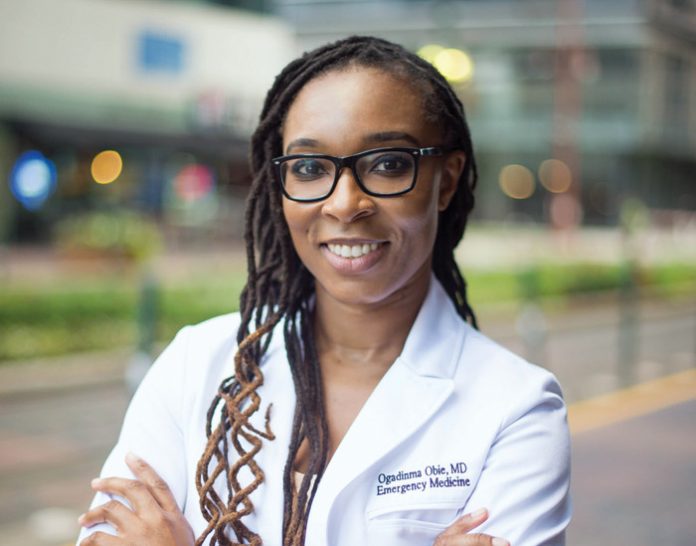Dr. Olga Obie is a board-certified emergency medicine physician who was working in Texas hospitals when she began studying the healing potential of cannabis-derived medicine. She moved to the San Francisco Bay area to work with patients who are interested in cannabis-based treatments and now plans to open a clinic in Houston to consult with patients about CBD and naturopathic therapies. She believes cannabis can help in the treatment of opioid addiction and may be able to mimic opioids in some treatment protocols.
Why do most patients come to you, and how do you discuss cannabis treatments?
The majority come to me for terminal diseases, seeking cures for diabetes and cancer, and I have also started working with Alzheimer’s patients. My desire is to teach patients they can control their health, and that is the power. They can navigate medications and side effects and they are the powerful ones, not us. Then I can say, “Let’s talk about this and evolve your thoughts and treatment plan.”
Chronic pain is a huge issue. It’s enough to make people want to commit suicide because their life is threatened. When we start treatment, [cannabis] alleviates pain for them, which gives them immediate confidence in their health. They need time to heal; in order to buy time, they need confidence. This support tells them they are on the right track. It’s important to say formulation-based medicine is more for symptom relief, whereas whole-plant medicine is more for healing, and one can’t go without the other.
Can cannabis-derived medicine mimic opioid drugs?
Absolutely. In general, opioids are substances that affect our endorphin pain system. A lot has to do with pain and our sense of well-being, appetite, and other effects. You see the receptors they affect, and so you can get into the idea of reproducing the receptor effect and the overall effect without the negative side effects. Opioids are manufactured chemicals and only affect one or two receptors, and there are no checks and balances. By contrast, cannabis mingles with our endocannabinoid system and self-regulates. So, when you see individual cannabanoids, you can regulate the mimicking system you’re trying to accomplish.
What is the next stage for medicinal cannabis?
Doing more research is invaluable, and I know of some physician groups that have PhDs involved in privately funded, controlled trials. But I don’t know of any that are formal programs. The problem is we need reproducible medicine and regulated medicine—meaning the regimen actually works and patients are not people who simply want to be under the influence.








